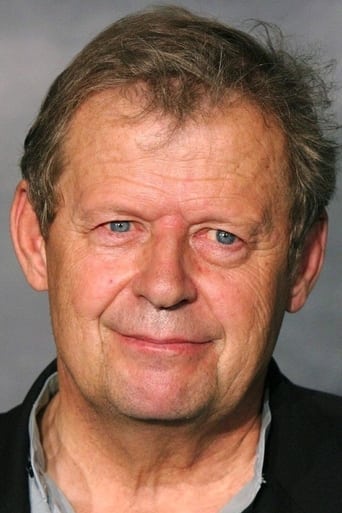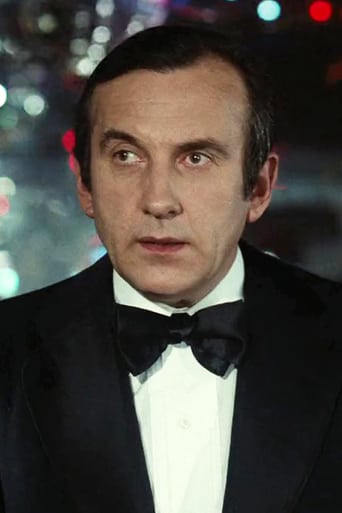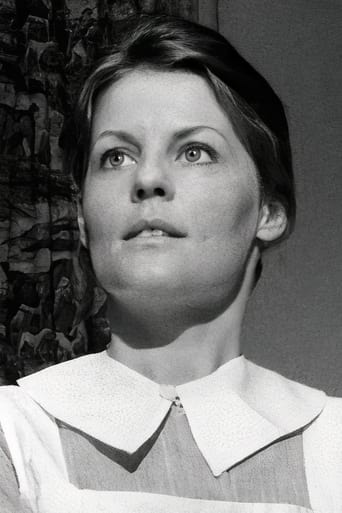Solemplex
To me, this movie is perfection.
Acensbart
Excellent but underrated film
Beystiman
It's fun, it's light, [but] it has a hard time when its tries to get heavy.
Nayan Gough
A great movie, one of the best of this year. There was a bit of confusion at one point in the plot, but nothing serious.
esteban1747
This is not a film made in a traditional fashion; it shows that men may have some thoughts even at 50s. If you are working in areas where you have to treat public, certainly you will find ladies (or men, vice versa for women) whom you may like certainly, and attraction sometimes is fatal for certain families. Here there is no violence just the desire of a single woman to be with a married man and the way the latter reacts and finishes this relationship together with the attitude of his wife. She may seem passive, but is not, she suspected a lot until the man declares love again for her wife.
MisterWhiplash
Eric Rohmer's sixth tale of "morality" in 1972 was Chloe in the Afternoon. While I haven't seen the other five, this installment had me from start to finish. Rohmer's work here, as well as the work done by the actors like Bernard Verley as the central character Frederic, his wife Francoise Verley as Helene, and Zouzou as the title character, doesn't amount to a masterpiece. It's questionable if someone will finish watching this and think of it was one of the great films from the 70's. But having said that, this film builds with a real vision by Rohmer into what he wants to say. The audience can tell within some time after the film starts that this isn't going to be one of those by-the-numbers tales of infidelity. There really is a consistency to what he and his actors are doing in the story.Frederic runs a Paris office and has Helen, his wife, with one child and another on the way. His narration conveys that there is a abscond he wants to seek, though he doesn't know how (most nights he falls asleep reading a book). Then enter Chloe, an old friend returning to France after years out of the country without a word. A friendship is re-kindled, however there could be something more to what it means as the film rolls along.Perhaps there was something I was expecting from Chloe in the Afternoon that Rohmer wasn't delivering, which is my only beef with the picture. He has a definite knack for laying on the subtleties of his characters (that is more like half him and half the actors portraying the emotions) that are expected in day-to-day lives among old friends, co-workers, and spouses, and the good qualities of the film hold up till the end. Yet I kept on feeling there was something almost deceptive about how the film progressed. I praise Rohmer for making the story choices he made, and all the same an expectedess, though I wonder if it will become richer and deeper as I get older, as I bring more to the work and understand where Rohmer's coming from in his "Moral" tale. It's a great work that I'll have to watch again (and hopefully again), if only to see if I gave an under-estimated view of the development of Frederic, Helene, and Chloe. Certainly more than a mild blip on the post-french new-wave radar though.
taylor9885
TFO, a French-language network, has been showing the Contes moraux for the last few weeks, and the strengths and weaknesses of Rohmer's approach are easy to see. When he has fine, committed actors like Francoise Fabian and Jean-Louis Trintignant in Ma nuit chez Maud, he can create a flow and vibrancy in the story-telling that make us forget the didacticism of the script (who cares about Jansenism and Blaise Pascal, anyway?).
Where he fails is in not being able to create three-dimensional characters, or not being able to coax a good performance from an actor. The glaring example of this is Brialy in Le genou de Claire who, wearing a thick beard, seems to sleep-walk through his part: his erotic obsession with a girl's lissome kneecap never comes to life. In the film in question today, Bernard Verley has a bland, pudding-like face that hardly provokes any interest in the viewer. How can such a pallid bourgeois be appealing to a bohemian girl like her?Francoise Verley as the wife has all the best moments; certainly the final scene is more interesting than what went before. She is not a beautiful woman, but her quiet strength and natural acting style are very convincing. Zouzou does not have the underlying restless energy and fierce sexuality you would expect in a girl who drifts from man to man, and her acting skills are minimal. All in all, a good film when concentrating on the family dynamics, but those scenes at the office between Verley and Zouzou are often tiresome.
cinephil-6
After watching "Claire's knee" which I personally adore, I was very impatient to discover another Eric Rohmer film. "Chloe in the afternoon" didn't disappoint me. As a matter of fact, I was captivated by the way E.R. puts his characters in interaction. It's unique to see how the scenes are put together and how E.R. makes you live the characters. I was really touched by this "moral tale".




